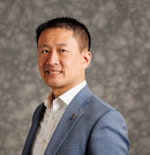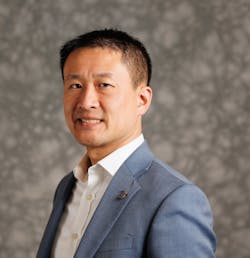Knowledge grounds individuals in reality. An organization can help to build individuals’ knowledge by supporting their educational and certification efforts and requiring the completion of select courses. The pursuit of knowledge doesn’t necessarily entail rote memorization of a textbook. The knowledge that matters is the content and concepts.
Research in fire science and organizational theory has made incredible strides. Textbooks can’t keep up. Limiting proliferation of newfound knowledge stunts growth. Individuals must be rewarded, not penalized, in promotional exams for exploring deeper into a topic by studying additional sources and consulting experts.
Understanding
Understanding enables individuals to assess facts and organize them into something more meaningful.
This involves the ability to rationally tie together seemingly disparate pieces of information. Individuals also should understand context and demonstrate the ability to discern how varying conditions can affect outcomes. Failure to understand a situation can lead to disaster.
Multiple choice tests struggle to capture individuals’ level of understanding. The “why” and “how” often are neglected. Organizations develop skills related to understanding by promoting critical thinking. Individuals should be allowed to explain decision-making without an assumption that only one solution exists.
Wisdom
Wisdom is essential to decision-making. It allows individuals to apply knowledge and understanding to determine what to do. Exercising knowledge and understanding tends to be a passive activity; exercising wisdom is an active and continuous function. For example, more than professional judgment determines the appropriate clinical intervention on a medical scene.
Answers might not be clean-cut. Conflicting concerns that are related to fiscal stewardship, legal liability, personnel safety and community service might complicate the decision-making process.
Core values should drive the determination of course of action. They must be communicated and ingrained within an organization’s membership.
Courage
At first glance, courage is innate in members of the fire service. That said, individuals might know what to do mentally, but physical and emotional hurdles might challenge them from taking initiative. Training and experience help dispel doubts that tasks can’t be performed.
Courage also involves the fortitude to endure through hardship. Strong camaraderie plays a role in promoting courage. It assures individuals that support is present. However, social dynamics also might play a negative role. Individuals who want to prove their courage might engage in reckless behavior on the fireground. Those who experience post-traumatic stress might convince themselves that seeking assistance is a sign of weakness when the opposite is true.
Courage also is a necessity in holding peers and superiors accountable. This applies to emergency scenes and station living. Organizations must empower all of their members, including rookies, to speak out.
Counsel
Counsel facilitates individuals’ experiences and gifts to be passed on. Knowledge, understanding, wisdom and courage are prerequisites to counsel. Misguided counsel in fireground tactics, equipment maintenance and procurement processes that are perpetuated by so-called organizational leaders take time to undo.
Effective counsel demands that an individual has built the essential skills to empathize and connect. Neglecting to do so might breed resentment. Individuals might reject advice regardless of its merit. When exercised properly, counsel enables individuals to learn from the mistakes of others, which serves as a less painful substitute for experience. An organization can help to develop an individual’s ability to counsel through mentorship programs as well as entrusting individuals in leadership roles.
Get to know members
No standardized test can determine who possesses these characteristics and skills. Organizations must learn about their membership through different lenses in identifying future fire service leaders.

Leonard Chan
Leonard N. Chan is the accreditation manager for the Houston Fire Department. He previously served in a similar role with the Cedar Park, TX, Fire Department. Chan serves as the chair of the Texas Consortium for Public Safety Excellence and is a principal member of the NFPA technical committee on fire analysts. He has mentored fire service-based research projects at Rice University, University of Houston (UH) and University of Texas at Austin and is an adjunct instructor for the UH Master of Public Administration program. Prior to joining the fire service, Chan served as legislative staff for the Texas Sunset Advisory Commission. He graduated magna cum laude from Rice University in political science, religious studies and history and holds a Master of Public Administration from UH.






